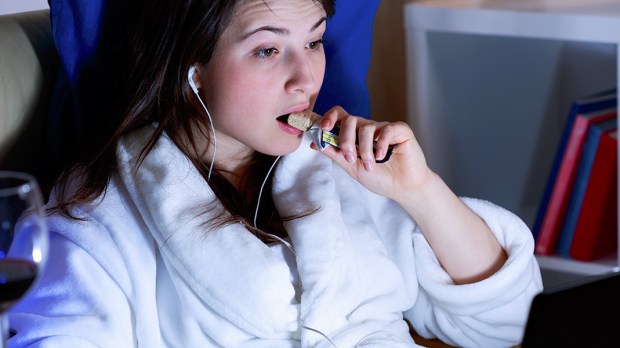Two weeks ago, we hastily packed up and evacuated from Hurricane Irma. Our family all lives in Texas, and since the size and intensity of the hurricane indicated widespread damage, we decided to make the long trek to DFW in case we needed shelter for an extended period.

Read more:
Trouble sleeping? Try staying awake!
Let me tell you, the trek is long. 1,359 miles long, to be exact — which we decided to drive straight through, both on the way there and on the way back.
I thought I had handled the lost sleep and insane schedule changes okay until I woke up this morning — three days after we got home — feeling wrecked, physically and mentally. That’s no surprise, according to Dr. Andrew Herring, a Harvard-trained ER physician who recently told Popular Science that a single night shift has “cognitive effects going out for a week.”
In 2006, University of Virginia researchers turned on the lights in the cages of lab mice six hours earlier than normal once a week for eight weeks, preventing them from resetting their clocks. In terms of light-cue changes, it was as if they’d flown from New York to Paris once a week. The result: Younger rodents got sick and displayed mentally unstable behavior; 53 percent of the older mice just dropped dead. “I really worry we are killing ourselves,” says Dr. Herring.
Dr. Herring is part of a growing field of physicians expressing concern over the systemic effects of sleep deprivation linked to artificial disruptions in human beings’ circadian rhythms.
Circadian rhythms are often thought of as internal clocks that tell us when to wake up and when to sleep — but that’s a dangerously simplistic understanding of them. They orchestrate peaks and valleys for everything from fat synthesis and cognition to hair growth. And contrary to popular understanding, they don’t just respond to light patterns. They also sync our bodily functions based on food intake (what and when), social interaction, and exercise routines.

Read more:
Which of these morning routines works best for you?
So it’s no surprise that a huge disruption like evacuation would have wreaked havoc on my circadian rhythm. Luckily, evacuation isn’t a common occurrence — but there are other daily activities that tweak the circadian rhythm. Researchers are beginning to realize that changes in the circadian rhythm can cause a cascade of negative effects throughout the entire body.
Chronobiology, the science of internal biological clocks, is a growing field of interest for research scientists and doctors. In the past decade, they have discovered that circadian rhythms are not limited to the small clock in the hypothalamus — in fact, nearly every organ in the body has an internal clock. The pancreas has one that tells it when to release insulin. The liver has one that tells it when to process fat and when to process glycogen. Even the eyes have one that tells them when to begin repairing UV damage.
These discoveries have huge implications for us that go way beyond the dangers of blue light. For years, doctors have warned us not to eat late at night because your metabolism is slower, but what they now understand is that food doesn’t just get processed more slowly at night — it doesn’t get processed the right way at all. Your pancreas and liver have shifted out of daytime-processing mode and into nighttime-repair mode, and overloading them with food (especially fatty and sugary food) causes the risk for obesity and liver damage to soar.
Although the study of chronobiology is still in its infancy, these discoveries are already enough to make me rethink that late-night pre-bedtime glass of wine or bowl of ice cream. And it’s definitely enough to convince me to never, ever again make a 24-hour drive without stopping for the night.
Now if you’ll excuse me, I have to go take a nap.

